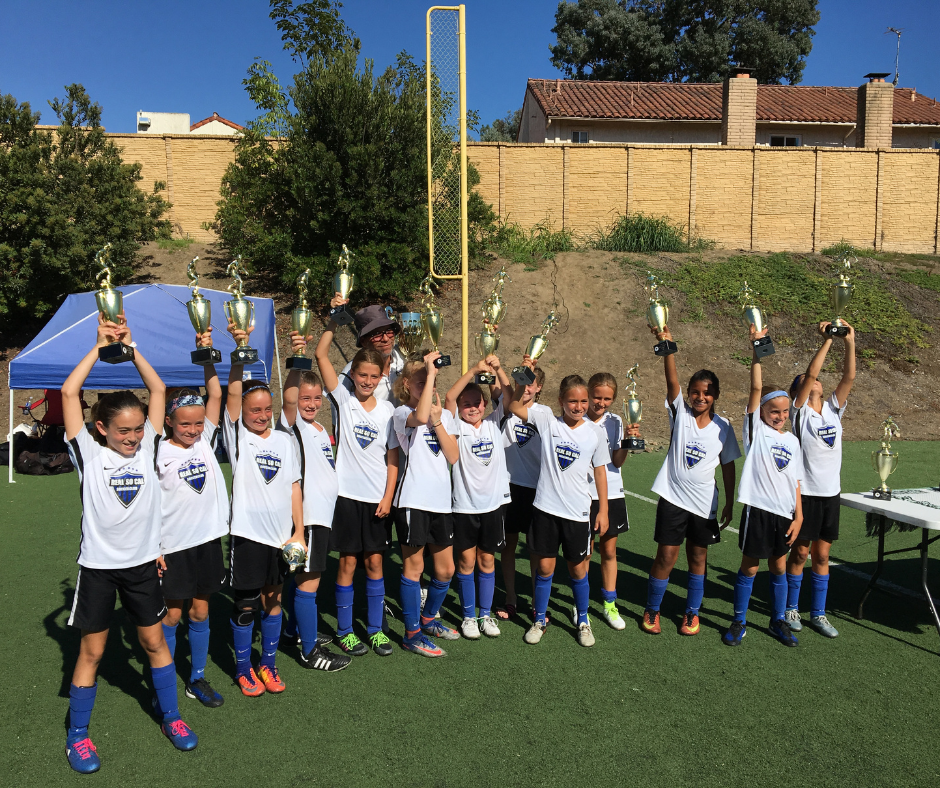
The Death of “Every Kid Gets a Trophy”
A decade ago, when I started I Love To Watch You Play, the sidelines were buzzing with one question: Should every kid get a trophy? It was the great parenting debate of the time. Medals and ribbons were handed out to every child, not just the ones who won, and the reasoning was simple: building self-esteem. If kids felt good about themselves, the thinking went, they’d keep coming back.
And yes, in some leagues and communities, participation trophies are still alive and well. But the national debate that once consumed youth sports — the outrage, the headlines, the late-night punchlines — has all but disappeared. The once-familiar panic about self-esteem has slipped quietly into the background.
Find Our What Kind of Sports Parent You Are – Take Our Quiz
What We’ve Learned
Looking back, it’s easier to see why the “everyone gets a trophy” mindset started to fade. Self-esteem built on praise and prizes doesn’t last. Kids may feel good in the moment, but it doesn’t carry them through failure or setbacks.
And we’ve also seen the bigger picture. Even before COVID, regular youth sports participation was slipping. Aspen Institute’s Project Play reports that only 37% of kids ages 6–12 play team sports regularly today. The kids who do stick with it consistently say the same thing: they play because it’s fun and because of the friends they make — not for trophies.
So maybe the real lesson isn’t just that participation trophies don’t work. It’s that what actually keeps kids in the game — and helps them grow stronger — is connection, belonging, and the chance to enjoy what they’re doing.
The Truth About Sports Specialization, What Every Parent Need To Know
The Landscape of Youth Sports Today
This shift shows up in the data. Kids aren’t leaving sports because they’re not winning enough medals; they’re leaving because joy, access, and balance are harder to find. By age 11, 70% of kids have quit sports altogether, often saying it just wasn’t fun anymore.
So maybe the question isn’t about protecting self-esteem at all. Maybe it’s about creating environments where kids want to stay — because they feel challenged, supported, and yes, like they matter. Check out this book by Jennifer Breheny Wallace on this subject, Never Enough. It’s a MUST READ.
What Kids Carry Forward
The memories that stay with kids aren’t the trophies lined up on a shelf. They’re the hard moments — and the way the adults around them helped those moments land.
It’s the season they hardly played, but the coach still noticed their effort in practice and reminded them they mattered to the team. It’s losing the championship game, crying together in the locker room, and then somehow ending up singing on the bus ride home — realizing that heartbreak and connection can exist side by side. It’s not making the team they’d pinned their hopes on, and instead of a parent brushing it off or rushing to fix it, hearing something simple and steady: I know this hurts, and I’m proud of you for how hard you tried.
These aren’t the highlight clips. They’re messy, emotional, and sometimes painful. But with the right support, they become the moments that teach kids they can fail and still belong, stumble and still be loved, lose and still move forward.
Where We Are Now
The trophy debate hasn’t disappeared completely — you can still find leagues handing them out, and parents rolling their eyes. But it’s no longer the cultural centerpiece it once was. The bigger questions now are about burnout, access, mental health, and why so many kids are walking away from sports.
Some places to start:
-
Let them fail. Don’t rush to fix every mistake or smooth over every loss. Sit with them in it.
-
Anchor worth in belonging, not achievement. Remind your kids they are loved and valued regardless of the scoreboard.
-
Protect the joy. Aspen Institute research shows fun is the number one reason kids play — and the number one reason they quit when it disappears. Guard it fiercely.
We may have moved past the trophy debates, but the heart of the work remains: raising kids who don’t need a medal in their hand to know they matter.











